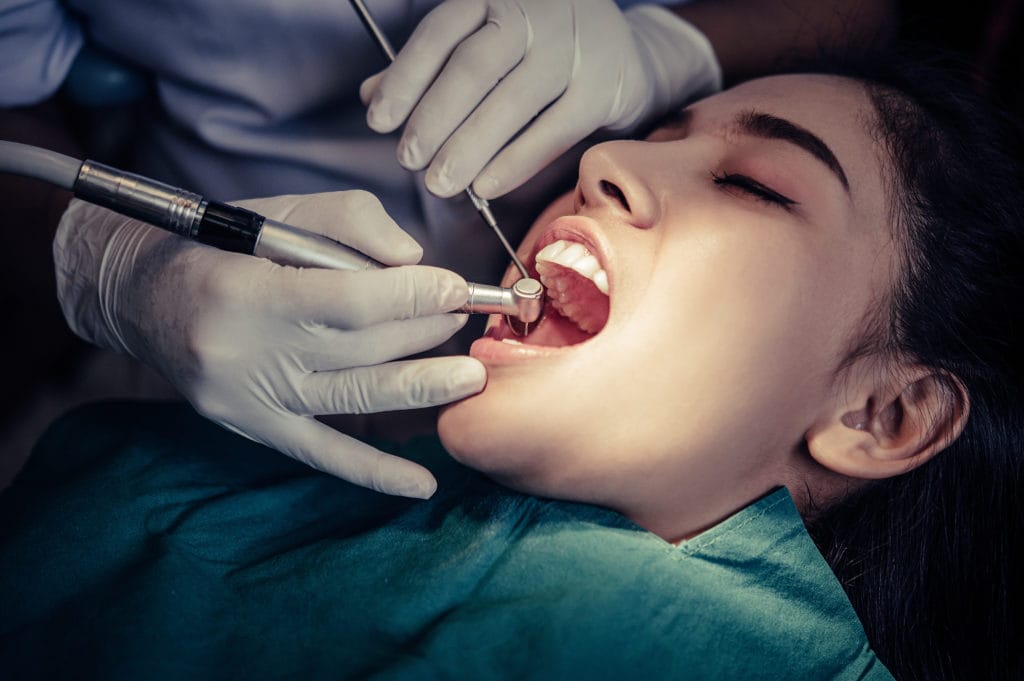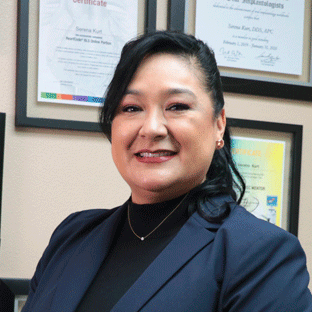As your dentist in Clairemont, we know that cavities are probably the worst enemy of our teeth. When cavities show up in one or more of our teeth, we need to do something about it before it’s too late.
However, some people don’t like the idea of visiting the dentist.
Some have trouble trusting a professional dentist due to bad experiences in the past. And it can also be due to anxiety or fear of feeling pain.
Nonetheless, it is important to say that our mouth is full of different kinds of bacteria.
Some bacteria are harmless, but not all of them are helpful. When we eat sugar, harmful bacteria can turn sugar we eat into acid that will cause erosion in our teeth and cavities as well.
Some people try to learn how to eliminate cavities at home because they want to avoid the dentist.
But, it is possible to remove cavities at home? Do we need to visit a dentist to achieve it? Today we are going to tell you what to do when a cavity shows up into your mouth.
How to know if I have Cavities?
Many people don’t realize they have cavities until it’s too late. Everyone wonders how they can know when they have cavities.
You can see them sometimes, but what about those cavities that arise behind in the molars? Those are not easy to notice. But in the early stages, you can’t feel or see cavities.
When the process advances too much, you may begin to feel sensitivity and sometimes pain. This pain can be a bad sign because it indicates that the process is very advanced. And you probably will need a root canal to fix your cavity.
These holes in your teeth form because of harmful bacteria that feed on the sugar you eat. This sugar can be on your potato chips, energy drinks, candies, or other types of sugary beverages or foods.
Acid can result from all this and have enough strength to wear down teeth’s enamel. It is worse when you don’t brush your teeth, giving bacteria more time to wear away your teeth.
If you don’t brush your teeth immediately, bacteria can act quickly. So, prepare yourself because if you tend to do this often, you are in trouble. You are increasing your chances of getting cavities.
Can I Get Rid of Cavities at Home?
Many times when we read articles and blogs online, we can think that a lot of things are possible at home.
However, it may not always be this way, especially when it comes to health.
We know that going to the dentist doesn’t always turn out to be sweet news.
People can sometimes feel that they waste a lot of time and money going to the dentist.
But we have to keep in mind that it is necessary and if we are careful with our health, we can avoid many dental problems in the future.
There are no home tricks to eliminate cavities. You have to go with a professional who can help you remove them.
What you can do at home is maintaining a good cleansing routine to prevent them from appearing in the first place.
So, patients need to understand that cavities won’t disappear on their own. Your Clairemont dentist can make them go away by repairing the area with dental fillings.
So you can try a thousand homemade tricks to eliminate cavities.
The truth is that although many say that you can get rid of them at home, you will not achieve it.
In fact, if you try too much, you can damage the enamel of your teeth or cause worse damage.
Pain, Sensibility and Other Signs
A straightforward way to notice cavities is sensitivity. You can feel sensitivity when you eat or drink something very cold or hot. Pay attention; this is always a bad sign.
You can feel it while eating something acidic or sweet, and if you do, be careful. Candies and sugary snacks can make it worse.
When sensitivity starts it can lead to pain and other dental problems that are uncomfortable for patients. If a patient feels that the pain is too severe, the infection probably already reached the nerve of the tooth.
When the infection reaches the nerves of a tooth, it may be too late to save it. Worst-case scenario: the patient needs a root canal (endodontics) or an extraction.
In those cases, the tooth has eroded the enamel and is starting to erode the dentin underneath. If the patient begins feeling any pain in a tooth, it is the tooth’s way of saying that you need to go to your dentist as soon as possible.
Once cavities reach the dentin, it will begin to decay faster. Your dentist in Clairemont can still save a tooth with a dental filling in early stages, as long as the decay hasn’t gotten past the dentin.
Remember to see a professional; a tooth infection can spread throughout your tooth until it reaches inner parts, becoming an abscessed tooth. An abscess is a small pocket full of liquid or pus that will make your mouth smell really bad.
Poor oral hygiene and tooth decay problems may cause bad breath.
Cavities can spread around rapidly, so the recommendation is to see a dentist. Seeing a professional as soon as you start to notice something is wrong, can save you time, money, and a lot of uncomfortable moments.
You can see it at the beginning depending on the size of the cavity.
Fixing Cavities: When to see my Clairemont Dentist
To fix a cavity, it will be necessary to go to your dentist. As I said early, it can’t be repaired at home.
If you notice that the color of a tooth has changed, you have some black spot, time to let the alarm sounds because something is wrong.
From here many things can happen, one of them is that you think that it will go on its own.
Time removes everything but cavities, those are removed by your dentist.
Don’t expect it to go on its own, because it is not going to happen. The best thing to do in this case is set an appointment today with your San Diego Dentist.
Something you need to know is that once the infection reaches dentin of a tooth, there will be no turning back.
Your dentist can fix small cavities with composite resin or some other material of your choice.
However, if it is necessary to remove a large amount of tooth you might need a crown.
Dental crowns can restore the way a tooth looked before the damage or decay.
Crowns mimic the structure, appearance, and functionally of a real tooth.
This is a nicer scenario because a root canal may be required.
You should also keep in mind that if your dentist can’t save your tooth due to the progress of the infection.
It is likely that you will lose it.
If you lose your tooth, you can’t just leave the empty space there.
You will have to replace the missing tooth before that gap wreaks havoc on the rest of your teeth.
Using Fluoride to Prevent Decay
You can do a lot of things to prevent tooth decay. Not always all of them will work, but still.
One of these tips is the use of fluoride to help prevent cavities.
Fluoride is a mineral that a lot of dentists use on children’s teeth to precisely prevent decay.
The reason for using this mineral is because it can kill the life of many harmful bacteria inside the mouth.
Which is great because we can eliminate the acid that causes tooth decay.
Before using fluoride, it is best to consult it with your dentist to know that it is a good idea.
Each patient is diverse and has different needs. Each dentist has his or her way of working and will recommend what he or she thinks is best for a patient.
You may not be able to remove cavities in your home, but there are ways to prevent them.
Don’t feel bad if even when you anticipate cavities still appear.
It is something that can happen despite so take good care of your teeth.
If prevention was enough to have perfect teeth, dentists might not exist.
So don’t assume wrongly and brush your teeth frequently.
You can use fluoride and also reduce the consumption of sweets and other foods that might cause damage to the enamel and health of your teeth.





